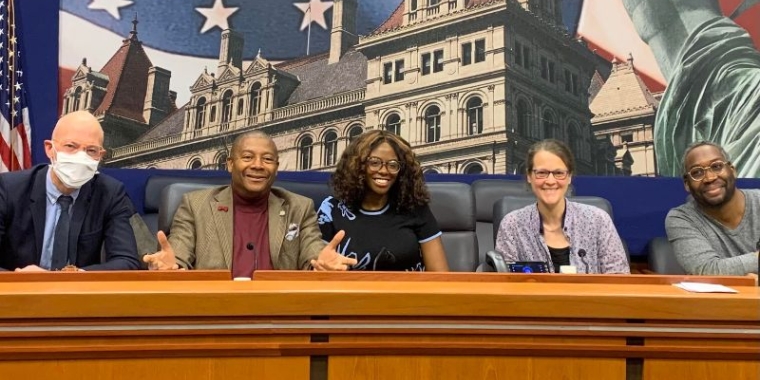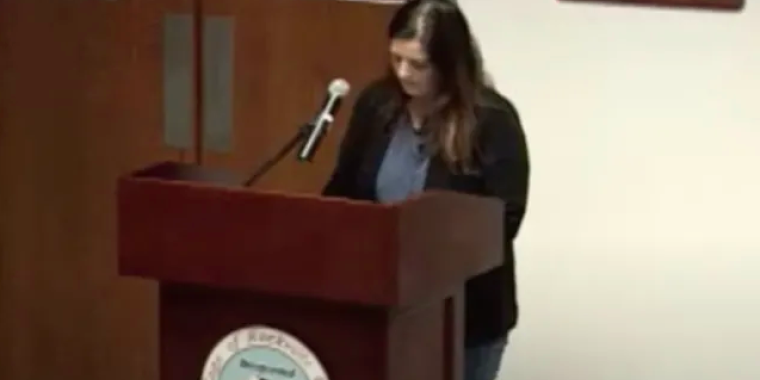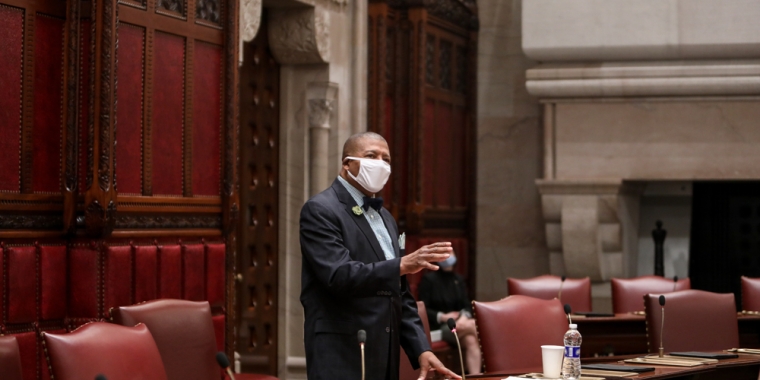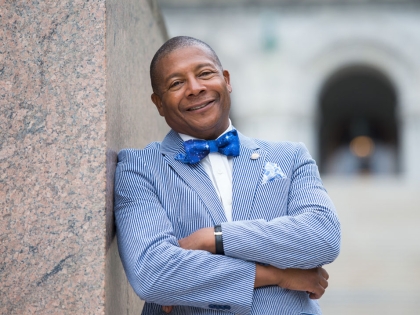
Access to City Contracts Leads Discussion At Sanders' Clergy Breakfast
April 27, 2017
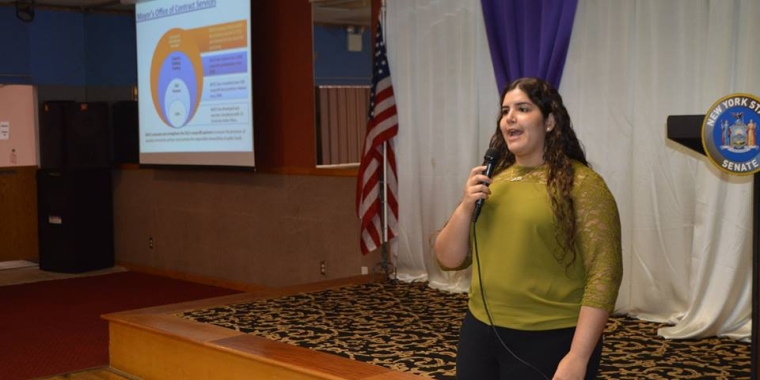
State Senator James Sanders Jr. (Rochdale Village, Far Rockaway) held his monthly Community Clergy Breakfast on Thursday, April 27, 2017 at New Haven Ministries in Richmond Hill. The topics of discussion included the basics of applying for city contracts, a presentation on creating a drug-free world, and increasing access to mental health services.
Stephanie Rodriguez, Senior Analyst with the Mayor's Office of Contract Services, spoke about the process in which non-profit organizations can apply for city contracts.
Each year the New York City Council awards discretionary funds to nonprofit organizations who offer services and resources in order to better meet the needs of a community. They fill in gaps left by city agencies.
Each Council Member gets $500,000 in discretionary funds, according to Rodriguez. Contracts are not grants. Vendors pay for their expenses and are reimbursed later, however advances may be requested. Invoices must be submitted in accordance with each city agency’s fiscal policies. The contract approval process can take anywhere from six months to one year.
There are three layers of oversight to protect the application process, ensure transparency and protection of the public trust – the City Council, MOCS, and the City agency that is designated by the Council to pay the nonprofit for community services.
The discretionary application requires information such as the organization’s mission and background information; details of its experience, qualifications and integrity; and an explanation of the projects and services for which the group requires the funding.
“We want to make sure that the organizations that are providing services to our community are financial sustainable, are doing the work that they say, and that they are actually getting the resources to the folks who need it the most,” Rodriguez said.
In addition to MOCS, Jonathan Soto, Executive Director of the Mayor’s Office of Faith-Based Partnerships, spoke about how the city is trying to expand awareness of mental health services through an event called the Mental Health Weekend of Faith (May 19-21). They also offer free full-day mental health and first aid training, after which participants receive a certificate. In addition the city has a 24/7 mental help hotline – 1-(888)-NYCWELL.
“Often times in the church when someone is struggling with mental health issues or there is someone who is mentally disturbed, we think we can just pray it away,” Soto said. “Even though there may be good intentions there, sometimes that is not enough.”
In line with taking care of one’s health, Dave Tidman with the Foundation for a Drug-Free World, a group that offers a pre-emptive educational approach on the subject of drugs and drug abuse through presentations, lectures and classes,
Tidman explained that faith-based leaders, who are often pillars of the community, can sometimes be the most successful in getting their congregants to end their substance abuse, because they offer both social and spiritual guidance.
These clergy breakfasts, which are more like training sessions, are held by Senator Sanders every month, with a new topic each time, but always aimed at educating faith-based leaders and giving them the tools and information they need to help themselves and their congregations.
Share this Article or Press Release
Newsroom
Go to Newsroom